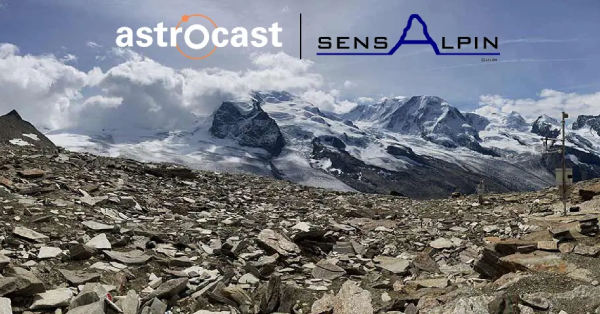Astrocast to develop a resource-optimized satellite communication system for Central Asia’s remote snow, glacier, and permafrost monitoring stations

This integration project is a joint effort between Astrocast and SensAlpin. Together, both organisations have worked on a solution that integrates Astrocast’s Astronode S+ on top of the control cabinet of the stations. As part of the trial, an adequate housing for harsh conditions, as well as the software for controlling the Astronode S+, will need to be implemented and tested in Davos before it is deployed in Kyrgyzstan.

Climate change poses a significant challenge for humanity, and the related global implications will influence and threaten future economies and the livelihoods of many coming generations, especially in developing countries. The UN General Assembly agreed upon 17 Sustainable Development Goals and related Targets, representing an overarching framework for implementing the Paris Agreement at the 21st Conference of the Parties of the UN Framework Convention on Climate Change. This project forms a part of this framework and supports these aspirations.
“Strategies to enforce climate resilience, and to mitigate and adapt to climate change must be based on strong and accurate baseline information. This includes data that can be tracked while monitoring the climate through using sophisticated, cost-effective satellite communication systems. In particular, the monitoring of Essential Climate Variables, as defined by the Global Climate Observing System are important. And, today, snow, glacier, and permafrost are considered Essential Climate Variables to track.”says Andreas Hasler, Project Manager, SensAlpin
In addition, this project also aims to improve the current services of the Hydromet and other research agencies in Kyrgyzstan and other countries in Central Asia.
“Water resources are unevenly distributed in Central Asia and are mainly stored in the cryosphere in the upstream countries – Kyrgyzstan and Tajikistan. As a result, this region faces numerous challenges in water management, energy production, irrigation, agriculture, environment, disaster risk reduction, security, and public health. This situation is very challenging for these countries and is taking their own sustainable development for the future into an enhanced risk by the ongoing climate change.“says Martin Hoelzle, Department of Geosciences, University of Fribourg

“Our team worked successfully with SensAlpin to integrate SatIoT into the satellite communication system that they developed for this project. The experience that our joint teams have gained through collaborating on this fascinating project will most likely result in additional developments for similar use cases, such as those found in other polar and high-altitude monitoring projects, where SatIoT can bring connectivity benefits to important sensors and other forms of monitoring equipment. For instance, based on this experience, our technology could be easily and cost-effectively integrated into an array of data loggers available on the market – such as those provided by the likes of Campbell Scientific, among others.” says Fabien Jordan, CEO Astrocast






































